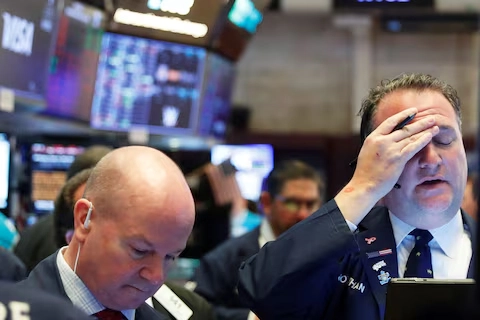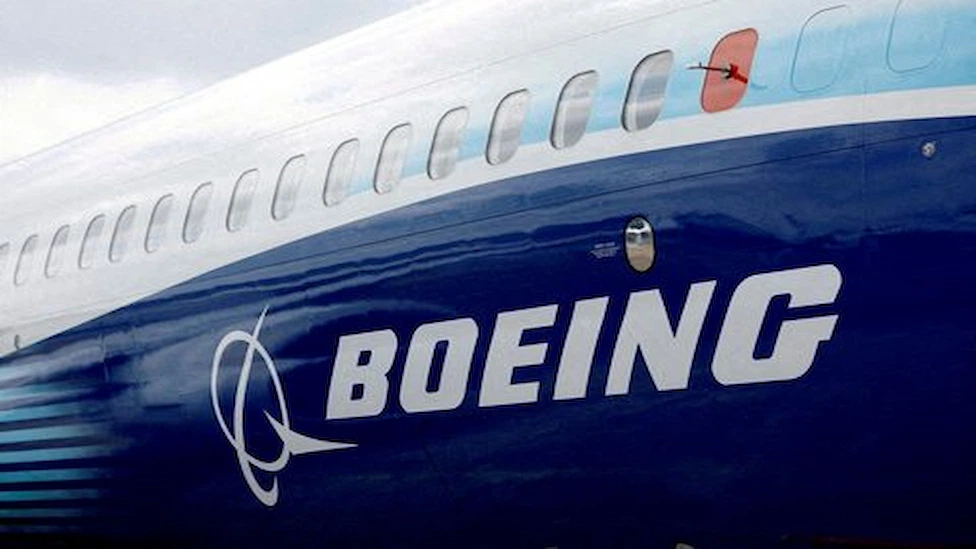Wall Street Dips Amid Middle East Tensions: On Thursday, June 12, 2025, Wall Street dips as rising Middle East tensions spook investors. Boeing shares fell 4.7% after an Air India crash killed over 200 people. President Trump warned of regional dangers, moving U.S. personnel out.
Iran threatened strikes if nuclear talks fail. Meanwhile, China confirmed a trade deal with the U.S., but details remain unclear. The Dow dropped 0.33%, while the S&P 500 and Nasdaq also slipped. Gold miners rose as safe-haven demand grew. Investors now watch for Fed rate decisions and trade developments.
Also Read | Air India Ahmedabad Crash: Investigation Underway for the Air India Flight Crash in Ahmedabad
Wall Street Dips Amid Middle East Tensions: Insights
- Wall Street dips due to Middle East tensions and Boeing’s decline.
- Boeing shares fell after an Air India Dreamliner crash.
- Iran warned of attacking U.S. bases if nuclear talks collapse.
- China affirmed a trade deal but provided few specifics.
- Gold stocks rose as investors sought safer assets.
- Traders expect Fed rate cuts by year-end.
Background
Recently, Wall Street dips have been tied to global uncertainties. Trade tensions and geopolitical risks often shake markets. Earlier, the U.S. and China reached a trade deal, easing some fears. However, fresh Middle East tensions reignited worries. Boeing faced scrutiny after recent crashes.
Investors also watched Fed rate policies amid inflation concerns. The S&P 500 neared record highs but stayed cautious. Analysts lowered recession odds, citing trade progress. Still, market volatility remained high as global risks persisted.
Main Event
On Thursday, June 12, 2025, Wall Street dips reflected growing investor anxiety. The Dow fell 140 points, while the S&P 500 and Nasdaq dropped. Boeing led losses after an Air India crash raised safety concerns.
Middle East tensions escalated. President Trump moved U.S. personnel out, calling the region “dangerous.” Iran warned of striking U.S. bases if nuclear talks fail.
China confirmed a trade deal with the U.S. but gave few details. Traders awaited clarity on tariffs and agreements. Gold prices rose as investors sought safety. Newmont and AngloGold shares climbed. Tech stocks were mixed. Alphabet fell while Nvidia edged up. Oracle surged 12% after boosting its revenue forecast.
Economic data softened fears. Jobless claims stayed steady, and producer prices rose less than expected. Traders now expect Fed rate cuts this year. The CME FedWatch tool shows a 60% chance of a September cut. Despite the dip, the S&P 500 remains near record highs. Goldman Sachs cut U.S. recession odds to 30%, citing trade progress.
Declining stocks outnumbered gainers on the NYSE and Nasdaq. Market volatility suggests cautious trading ahead.

Emotions run high as a broker responds to market activity at the NYSE trading floor in New York, March 18, 2020.
Photo Credits: REUTERS.
Also Read | Iran Nuclear Tensions Escalate as UN Declares Breach, US Evacuates Personnel
Implications
The Wall Street dips affect multiple groups. Investors face uncertainty from geopolitics and trade. Boeing’s drop may pressure aviation stocks. Gold miners benefit as safe-haven demand grows. Tech stocks may stay volatile.
The Fed’s rate decisions will shape market trends. Lower rates could boost stocks but hurt savers. Businesses await trade clarity to plan investments. Consumers may see stable prices if inflation stays low. Global tensions could keep markets shaky. Traders must watch Fed moves and geopolitical risks.
Conclusion
Wall Street dips highlight market sensitivity to global risks. Middle East tensions and Boeing’s fall hurt sentiment. Yet, trade hopes and Fed cuts may support stocks. Experts see lower recession risks but warn of volatility. Investors should monitor geopolitics and economic data. The market’s next moves depend on Fed policies and trade deals.



